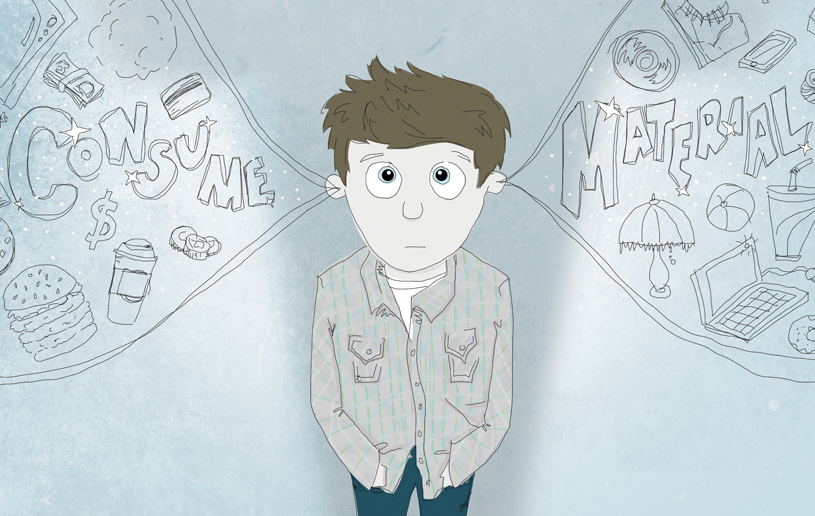
Since the time Cain refused to give God the first fruits of his crops, humanity has had difficulty properly relating to material things, as they relate to idolatry, materialism, and stewardship.
In the past our relationship to material things was only one of many issues Christians faced. But today, in our North American culture and society where consumerism and materialism are twin gods, this is a key issue, if not the key issue facing Christians.
We cannot escape. We live, and move, and have our being in a consumer cosmos. The global economy and interconnection of markets and resources means every time we eat a meal, listen to music, put on clothing, or read a book we are being consumers.
There is nothing wrong with basic consumption or material things. We need them to live. The problem comes when the “ism” is added. Materialism is the “preoccupation with or emphasis on material objects, comforts, and considerations, with a disinterest in or rejection of spiritual, intellectual, or cultural values.”1
I'm suggesting that Christians, by and large, have responded to the ethos of our day with accommodation. Indeed we have not only accommodated our lifestyles to mirror the world's attitudes, some have even developed a prosperity theology that promotes materialism and consumerism as a divine right.
But Jesus said, “Watch out! Be on your guard against all kinds of greed; life does not consist in an abundance of possessions” (Luke 12:15 NIV). He said it was the “deceitfulness of riches and the desires for other things” that kept the Word from being fruitful in the lives of believers (Mark 4:19 NASB). One may not have riches or things yet still desire them. It is the love of money that is a root of all kinds of evil, not money itself. It is not the rich man's riches that keep him out of heaven, but that his love for them is greater than his love for the Lord.
Although we live in a consumer society we do not have to have a consumer world view. The early Christians lived within the Roman Empire but their hearts and minds were not beholden to Caesar. Likewise, we must learn to exist in a consumer empire but not forfeit our souls at its altar. Loosening our death grip on things and living in this consumerist, material world but not being of it can come as we obey three biblical principles.
The first is stewardship. This applies whether we have much or little. It is not the amount of stuff you possess that makes you a materialist or not. It is your attitude toward it. Psalm 24:1 says, “The earth is the LORD's, and everything in it, the world, and all who live in it” (NIV). We are not owners, only managers charged with managing material things for the glory of God, the furthering of His kingdom and showing love to people. We will also give an account for how well we do that. A good steward knows this and lives accordingly.
The second principle is simplicity. Most of us have too much stuff. But getting rid of the clutter is hard because we are emotionally attached to it, which is an indictment in itself. It's hard because sometimes even the good is the enemy of the best. And it's hard because unknowingly we may be deceived into believing the lie that those things keeping us from simplicity of life and devotion to Christ are things, which will make us happy and satisfy us. Compared to knowing God, they are merely trivial pursuits.
Pursuing simplicity requires renewed minds released from consumerism's grip. It requires minds captivated again by the total sufficiency of Christ to meet all our needs. Simplifying our life is a spiritual discipline that takes time to implement and diligence to maintain. Yet the reward of removing the clutter is that we free up the time and mental space to pursue the Lord.
Finally, strengthening our grip on heaven helps wean us from material things. The things of earth will grow dim as we choose to value and invest in the things of heaven more—as we store up treasures in heaven, “For where your treasure is, there your heart will be also” (Matthew 6:21 NIV).
We are citizens of heaven and stewards of earth. This world is not our home and the things we collect and use are not ours. They are not idols to be worshipped, but tools to use to fit us for the life to come. Remembering this will make us different and free.

